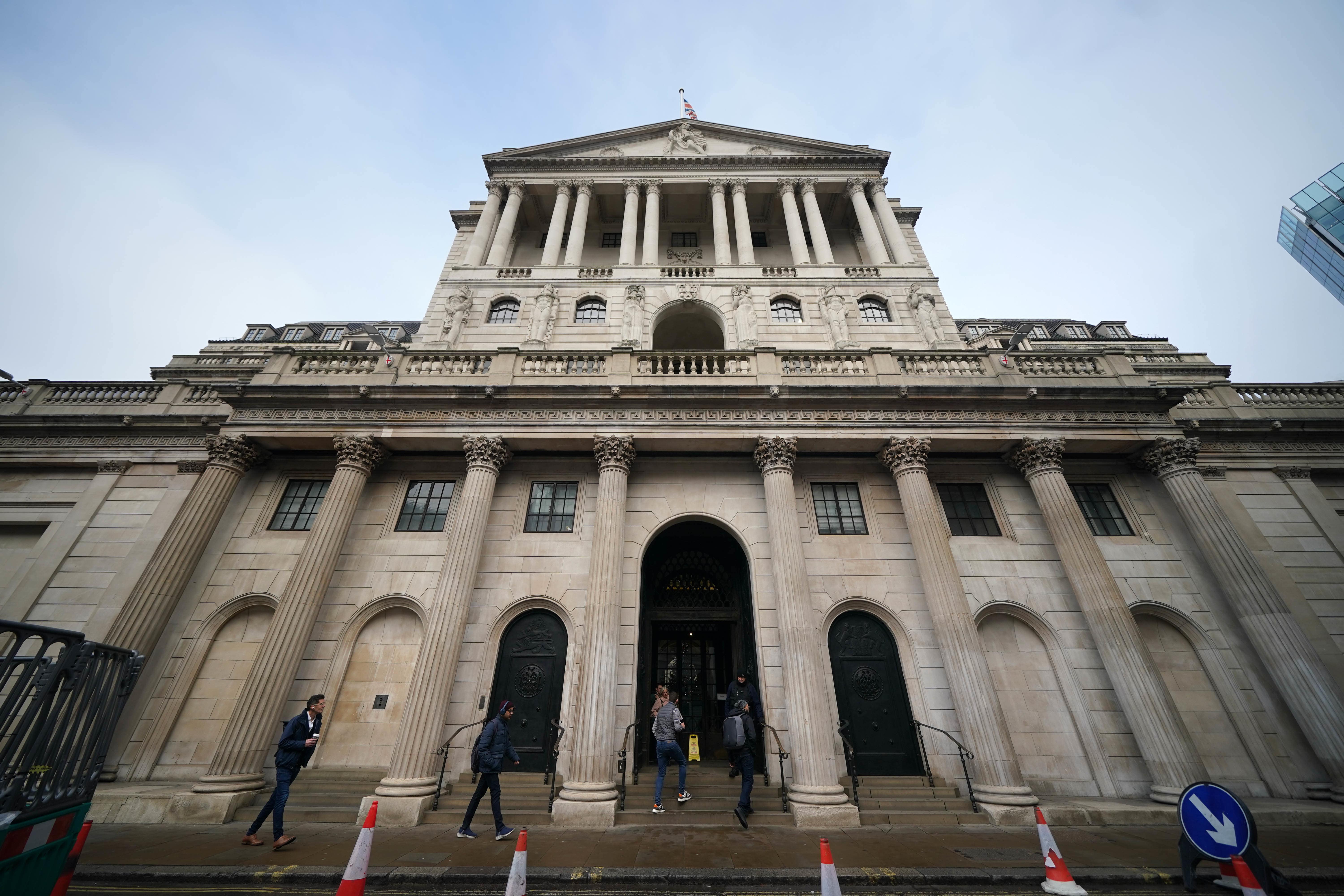Rising interest rates kill off the most British businesses in a year since 1993
Labour said this was yet more evidence of Tory ‘economic failure’

Your support helps us to tell the story
From reproductive rights to climate change to Big Tech, The Independent is on the ground when the story is developing. Whether it's investigating the financials of Elon Musk's pro-Trump PAC or producing our latest documentary, 'The A Word', which shines a light on the American women fighting for reproductive rights, we know how important it is to parse out the facts from the messaging.
At such a critical moment in US history, we need reporters on the ground. Your donation allows us to keep sending journalists to speak to both sides of the story.
The Independent is trusted by Americans across the entire political spectrum. And unlike many other quality news outlets, we choose not to lock Americans out of our reporting and analysis with paywalls. We believe quality journalism should be available to everyone, paid for by those who can afford it.
Your support makes all the difference.The number of company insolvencies hit a 30-year high last year as firms struggled with high interest rates, increased cost pressures and weak consumer confidence.
There were 25,158 firms across England and Wales that went bust in 2023 - up 14 per cent on 2022 and the highest annual number since 1993, the Insolvency Service said on Tuesday.
The number of voluntary liquidations (CVLs) leapt by 9 per cent to 20,577, marking the highest since records began in 1960.
In terms of the rate, 53.7 per 10,000 active companies went involvent in 2023, an increase from 49.6 in 2022. However the figure is still far lower than the peak rate of 94.8 insolvencies during the 2008 credit crunch.
The stark figures illustrate the succession of economic pressures that businesses have faced in the last year, including higher interest rates, skyrocketing energy and staff wage bills, while they also grappled with falling consumer confidence.

Experts have warned that the high-level of insolvencies mean the trading environment in the UK remains “pretty onerous” and businesses are facing conditions that form a “perfect storm for financial distress”.
Labour said this was yet more evidence of Tory “economic failure” and the Liberal Democrats said that under Rishi Sunak and Jeremy Hunt’s watch British businesses have “withered away”.
Shadow business secretary Jonathan Reynolds said this was yet more evidence of “14 years of Conservative economic failure.”
He added: “The Tories have left Britain with flatlining growth, high taxes and now British business shutting their doors for good at record levels.
“It's time for change. Labour has a plan to back British business, reforming business rates, lowering energy bills and reviving the great British high street.”
Liberal Democrat Treasury spokesperson, Sarah Olney MP said that under Rishi Sunak and Jeremy Hunt’s watch, British businesses have “withered away” and communities left “without vital shops and services”.
The data also showed a 14 per cent year-on-year increase in insolvencies to 6,788 in the last three months of last year - the highest since the end of 2008. This was also 9 per cent higher than the previous quarter.
Julie Palmer, partner at Begbies Traynor, said: “It’s the worst set of figures in over 30 years, which demonstrates just how tough it was for many businesses. On top of this, 47,000 UK businesses started 2024 on the edge of collapse according to our most recent Red Flag Alert report, all of which points to further trouble this year.

“Thousands of businesses have been pushed into insolvency due to a combination of interest rates at levels we haven’t seen in over a decade, pushing the cost of borrowing up, alongside inflation, weak consumer confidence and rising input costs – a perfect storm for financial distress.
“That being said, a better-than-expected Christmas may delay concerns for some companies and today’s fall in shop price inflation, together with signals from the Bank of England that interest rates may start to fall, also provide some comfort for business leaders already worried about their future.
“With more businesses entering insolvency in 2023 than during the financial crisis, economic conditions must improve quickly, otherwise the fight for survival in 2024 might be a step too far for the battered and debt-laden businesses that managed to survive last year.”
The three industries with the highest levels of insolvencies last year were construction, wholesale and retail and accomodation and food services.
Restructuring expert Mark Ford, at professional services firm Evelyn Partners, said: “While in terms of interest rates and prices the general feeling might be that the worst is over, the trading environment for businesses in the UK remains pretty onerous.
“We can expect the costs environment for some firms to become more challenging, particularly but not exclusively in construction, retail, leisure and healthcare sectors.
“It also looks like the crisis in the Middle East might start to choke supply chains, lengthen lead times and possibly restrict the supply of imported materials and components.”
Jeremy Whiteson, Restructuring and Insolvency Partner at law Fladgate, added it was “a worrying situation.”
He said: “Many companies are facing the attritional damage from a series of financial shocks- the pandemic; Brexit, shortages and high prices for labour, power and many commodities; overseas conflicts; high interest rates; and anaemic growth denting consumer confidence. This is bound to take its toll on UK businesses.”
The figures come just days before the Bank of England is expected to keep interest rates at 5.25 per cent, with policymakers under pressure to start cutting rates later in the year.
Join our commenting forum
Join thought-provoking conversations, follow other Independent readers and see their replies
0Comments